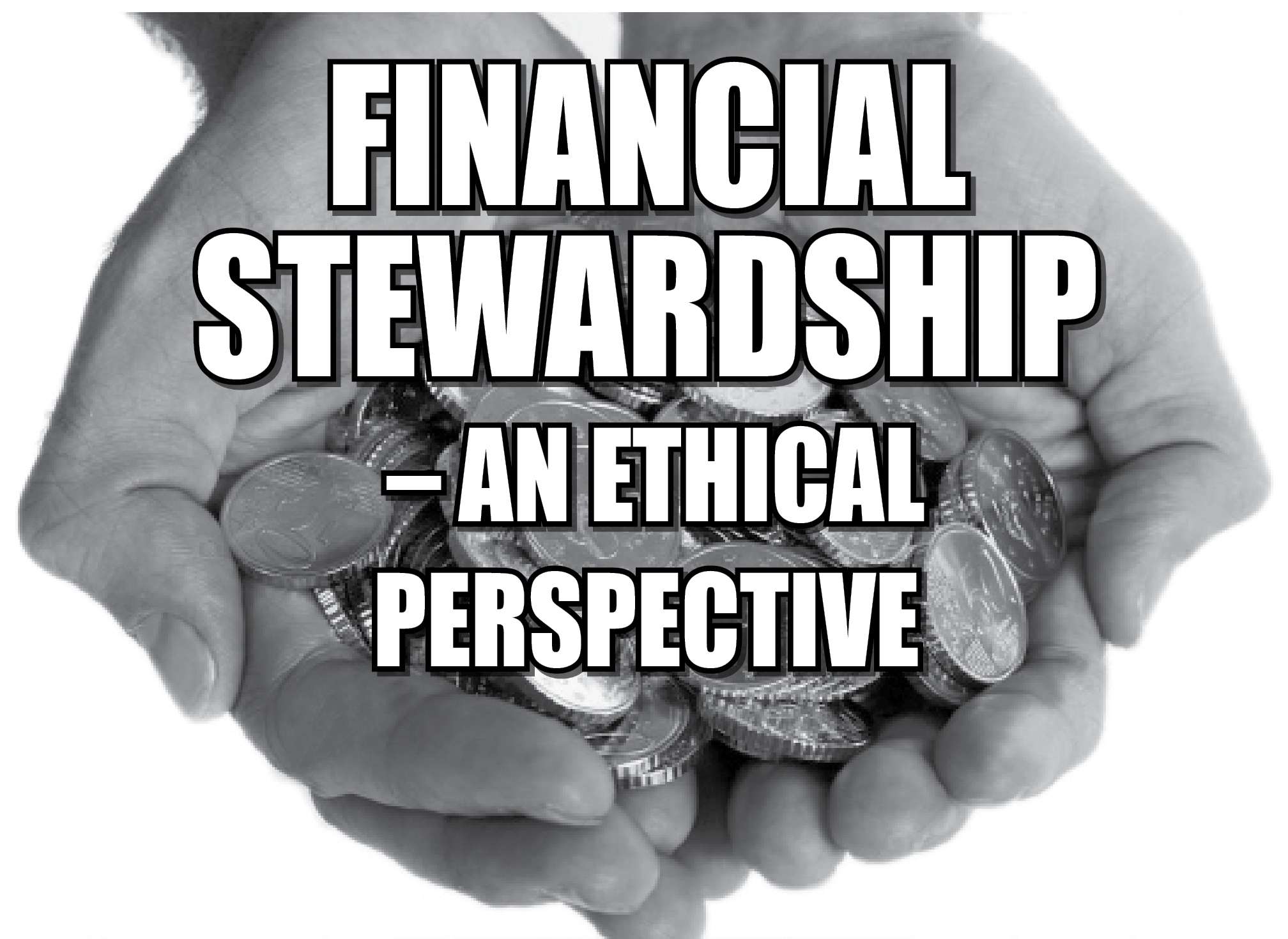

Ethics of the Kingdom of God
Pr. Christopher Varughese
Kingdom is a localised concept. The Greek word basileia for kingdom gives the idea of sphere or realm. However, the biblical word Kingdom derives its basic meaning from the Old Testament 'malkuth' which has the dynamic meaning, 'reign' or 'rule' and not the realm over which a king rules. The idea of the 'Kingdom of God' connects both the testaments, and it comes from the belief that God is the creator and ruler of Israel in the Old Testament and of the New Israel in the New Testament.
The term 'kingdom of God' does not occur in the Old Testament, but the idea runs through the entire part. Even in the New Testament, except in the Synoptic Gospels, the term is rarely seen. New Testament ethics is summarised as the Kingdom of God ethics. The main concepts of Kingdom of God can be summarised as values like love, justice, peace, equality, freedom, etc. These values develop from relationships or communities and become redundant when seen in individualistic terms. Values assume their role only in a community. Therefore, Kingdom of God is a vision of God's absolute rule or presence in our community.
In the Synoptic Gospels the 'kingdom of God' and the 'kingdom of heaven' are interchangeable. Kingdom expressions are found more than a hundred times in the first three gospels, but only twice in the fourth gospel. The whole message of Jesus was centred on the proclamation of kingdom of God. The authors of the synoptic gospels record a number of summaries of Jesus' message into which are incorporated references to His Kingdom proclamation. It is interesting to know that while Jesus referred to the church only two times, He referred to the 'Kingdom' seven times. While John uses the same idea and calls it 'eternal life', Paul uses the idea in the form 'Christ Mysticism'.
G. R. Beasley-Murray has illuminated the idea of God's rule in the OT and its relation to subsequent talk of the Kingdom of God by grounding it in Israel's experience of the coming of God in the Exodus to bring judgment and salvation to establish God's will. Hence, when God's people look to the future in expectation of the coming of God's kingdom, they would focus pre-eminently on the coming of God himself. Then, God would inaugurate His universal rule, justice would triumph and peace and salvation would be established in the world. Subsequent Judaism developed this notion of the Kingdom of God with growing Messianic expectation, focused above all on a Davidic King who would overturn foreign domination and usher in a new epoch of peace. Under the influence of various apocalyptic thoughts several others developed a kingdom meaning God's intervention in history. Recent study has shown Jesus having borrowed from and adopted both strands of these traditions. While insisting on this worldly significance of the Kingdom, Jesus also embraced the apocalyptic emphasis on the future and transcendent coming of the Kingdom.
The Concept of Kingdom of God
It is clear that there lies a tension among scholars as to whether the Kingdom of God is already 'realised' or 'eschatological'. This tension stems from the phrases of the New Testament: 'Kingdom of God is already in the midst of you' and 'Kingdom is at hand.' While the former talks of a Kingdom of God already present now, the latter looks forward to a Kingdom yet to come.
Origen stated that Jesus was Himself the Kingdom. N. Perrin (1912-76) tried to define Kingdom of God in Jesus' understanding with no time referent, as a symbol evolving the myth of God acting with sovereign power. However, D. C. Alison Jr. has observed Kingdom of God might refer both to God's saving activity and to the reality of His present and future reign. Schweitzer argued that Jesus proclaimed the imminent arrival of the eschatological kingdom. But C. H. Dodd contented that Jesus proclaimed the Kingdom to have arrived already in His own ministry (realized eschatology). Kummel asks to avoid a clear decision between these two views by arguing that while the eschatological Kingdom was still futuristic it was effectively present in the ministry of Jesus.
It was Latin American liberation theologian Juan Luir Segundo who reacted against those who relegate fully the coming of the Kingdom of God to divine activity and so deny their own present responsibilities in the light of the in-breaking kingdom. For him Kingdom of God is the necessity of and calls for human collaboration in establishing justice in the world. Hans Kunn says, "Indeed, the preaching of the Kingdom of God is an affirmation of creation, and the consummation of the Kingdom is 'creation healed'."
Those advocating the realised Kingdom of God tend to leave out the future and set their goals on the present realities we face in this world. On the other hand, those campaigning for an eschatological Kingdom of God are inclined to forget the present issues in view of a bright and prosperous 'other world'.
While this issue continues to baffle scholars, distinguished ethicist K. C. Abraham finds this tension to be our place for doing ethics. Abraham argues that the realised presence of the Kingdom of God 'here and now' should be our guideline to establish the Kingdom values here and now. On the other hand, instead of viewing the eschatological Kingdom of God as a means to evade from present realities of life, it should serve as our dynamics to move ahead in this world while doing our duties responsibly. We need to walk well with Christ while waiting for Him to return.
Central Ethical Principles of the Kingdom of God
Love
Jesus maintained that the supreme law of life was to love God with all the energy of one's being and to love one's neighbour as oneself (Mark 12: 30-31; Luke 10:25-28). The love of God manifests itself in limitless trust (Matt 7:7-11), childlike reverence (Mark 10:14-15) and unconditional obedience (Matt 7:21). Further, in the parable of the Good Samaritan, Jesus introduced a new conception of 'neighbour' as any human being whom it is possible to serve irrespective of race, nationality or creed. The love of God comes first. It is only the love of God that can give the love of man depth and width, which introduces a new humanness into the heart.
Jesus discovered the revelation of God's love in the very fact that the imminent Kingdom of God was announced before its coming in its fullness. So we need communion with God. Communion with God is lively participation in His creative love which supports all creatures, grants them their limited duration, and brings them to fulfilment of life by relating them to one another.
Freedom and Equality
The final destiny of man is free and equal. Freedom and equality mark all human relations. The central ideas of God's kingdom are freedom and equality. The God who revealed in Jesus Christ proclaimed the freedom to those who has been oppressed, marginalised and victimised. Jesus sidelined with the poor and oppressed because more support must be provided for the underprivileged so that their opportunity may be genuinely equal. Where freedom and quality have become the basis of political life, the individual is the purpose of society. The state is made for human beings, and not human beings for the state. The idea that individuals represent the purpose of the society is basic to the concept of self government.
Commonweal (Common well-being)
The tension between the interests of pressure groups and the commonweal can be understood as a tension between the sovereignty of the people and the Kingdom of God. In its relevance to a particular social situation, the Kingdom of God is manifest in the common good. The commonweal, the manifestation of God's sovereignty must be elevated above the people's sovereignty and narrow self interests to incorporate the 'other'. The Christian proclamation points to the imminent Kingdom of God by avoiding the priority of the commonweal over all conflicting claims. Indeed, in the original hope for God's Kingdom, as in the Old Testament, the great terms are peace and justice, distinctly social realities.
Peace and Justice
Peace is premised upon mutual acknowledgment and is constitutive for the idea of justice. In Synoptic Gospels we see recognition of the presence of the coming Kingdom in the midst of the continuities of the old age. This eschatology led to conflict within and around emerging Christian communities over the nation and status of established Jewish Institutions. Kingdom of God stands for God's continuing presence to establish peace and justice in this world. In order to attain peace we need a struggle for justice. The real justice concern will definitely promote the Kingdom values. The whole New Testament teaching is centred on God's intervention amidst the evil structures to lead the world towards a peaceful situation.
Reconciliation
While most ethical treatises wind up with the principles stated above, K. C. Abraham moves the debate a little forward to bring in the concept of reconciliation. Reconciliation means to settle a quarrel or difference and bring into agreement or harmony. Reconciliation helps to move forward beyond the painful scars of the past. It is a vital step away from the non viable claims towards establishing the Kingdom. True reconciliation automatically puts into practice a combined network of the above said principles.
Hizkias Assefa, Professor of Conflict Studies at Eastern Mennonite University outlines in detail the elements of a true reconciliation. The basic steps are as follows: a) Honest acknowledgment of the harm/injury each party has inflicted on the other; b) Sincere regrets and remorse for the injury done; c) Readiness to apologize for one's role in inflicting the injury; d) Readiness of the conflicting parties to 'let go' of the anger and bitterness caused by the conflict and the injury; e) Commitment by the offender not to repeat the injury; f) Sincere effort to redress past grievances that caused the conflict and compensate the damage caused to the extent possible; g) Entering into a new mutually enriching relationship. Reconciliation then refers to this new relationship that emerges as a consequence of these processes. This is where true healing takes place, establishing the vision of God's absolute rule or presence in our community.
The Sermon on the Mount: A Guide to Kingdom Ethics
Kingdom ethics are best interpreted in relation to Jesus' words about the Kingdom of God. The Sermon on the Mount in Matthew 5-7 is the best example of Christ's ethical teaching. His holy demands for our character and conduct are imposed on those of us who have submitted to His Kingdom rule as His disciples. God's redeeming reign over our lives requires kingdom righteousness in our lives. In a decaying world, the Christian counter culture is the life of the kingdom of God, a fully human life indeed, but lived out under the divine rule (John Stott). It depicts the behaviour which Jesus expected of each of His disciples, who is also thereby a citizen of God's kingdom.
It would be a tedious task to narrate all of lessons that we find in the Sermon on the Mount. Jesus deals with issues like "character (beatitudes - Matt. 5:3-12), influence (salt and light - Matt. 5:13-16), righteousness (murder, adultery, divorce, swearing, revenge, love - Matt. 5:17-48), piety (alms, prayer, fasting - Matt. 6:1-18), ambition (money, materialism - Matt. 6:19-34), relationships (-to brothers, "dogs," prayer, false prophets - Matt. 7:1-23), and commitment (sand or rock - Matt. 7:24-27) of kingdom citizens" (David Naugle).
However, the crux of the Sermon on the Mount is seen in Matthew 6:33. It is important especially since it is often misunderstood despite being the core of Jesus' kingdom ethics. The cry here is to "seek first His kingdom and His righteousness." It comes with the promise tag, "and all these things shall be added to you." It is evident that the promise Jesus makes here deals with the priority of His Kingdom and its righteousness. In simple words, the Kingdom and righteousness must be of utmost concern for a believer. Everything else will be provided by God.
For most believers, 'seek first' calls for placing God at the start of the day. To wake up with prayer and Bible reading and thus giving God what is due. Once we are done with our religious deal, we get on with our daily activities and expect God to keep the remainder of the contract, i.e. "all these things shall be added to you." This piety is what is accomplished when a person quickly picks up the Bible and reads a verse or a Psalm, and quietly bows in a silent prayer before heading out to the office, school or other work places. They expect their day to turn out good as they had sought God's face before the tide of a hectic schedule swept them off their feet.
Similarly, it is not uncommon to hear people relating the reason for their bad day or circumstances to their inability to pray in the morning. Often people feel guilty if they missed to read their Bible and pray the first thing in the day. But this perspective tends to isolate the Kingdom and its righteousness from life itself. It segregates religious category from all the others, even if we do put it first. While placing these things at the start of the day might be a good routine, it would turn out to be mere superstition if we deviate from what Jesus intended it to mean.
If we remember that God's Kingdom is His rule and authority, then what Jesus is saying is that we must seek His rule and authority in every aspect of our lives as our top priority. We must discover and apply Kingdom righteousness in all that we think and do as our first order of business. We seek the Kingdom and pursue righteousness in life, not as a separate and distinct compartment before it. This means bringing God's rule and righteousness to bear as our chief concern in areas such as our education, work, family, marriage, entertainment, our friendships, political involvements, church life, our reading, our driving, etc. This can be accomplished when we put into practise the principles of love, freedom, equality, commonweal, justice, peace and reconciliation. When we make God's rule and righteousness most important in all aspects of our lives, then God takes care of everything else! This is the heart and soul of genuine Kingdom ethics.
When we internalise this message of the Kingdom, it calls forth for a radical shift in our attitude and lifestyle. We are then ready to make huge sacrifices to obtain the 'Hidden Treasure' or the 'Pearl of Great Price'. Every day we make a lot of sacrifices. We sacrifice our time for our education, work, family, church, etc. We sacrifice our money to buy things that we like the most for ourselves or for those whom we love the most. We spent our energy and talents into those areas that we value most. A simple introspection on where we make the maximum sacrifices can point to us our priorities of life. If we are able to sacrifice the utmost for the Kingdom of God, then we truly are seeking first the Kingdom of God. If we emphasize what Christ told us to prioritise, then all that we need will be added to the relational rule of Christ in our lives.





